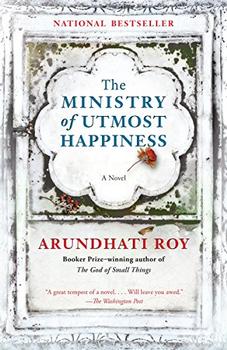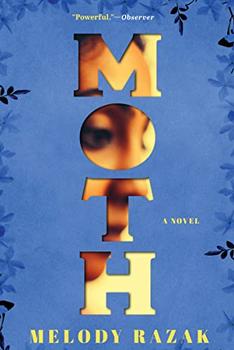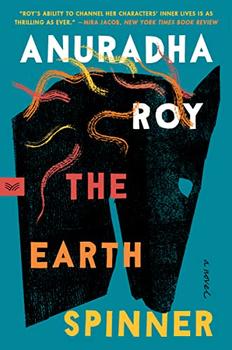Summary | Excerpt | Reading Guide | Reviews | Beyond the book | Read-Alikes | Genres & Themes | Author Bio

A dazzling, richly moving new novel by the internationally celebrated author of The God of Small Things.
The Ministry of Utmost Happiness takes us on an intimate journey of many years across the Indian subcontinent - from the cramped neighborhoods of Old Delhi and the roads of the new city to the mountains and valleys of Kashmir and beyond, where war is peace and peace is war.
It is an aching love story and a decisive remonstration, a story told in a whisper, in a shout, through unsentimental tears and sometimes with a bitter laugh. Each of its characters is indelibly, tenderly rendered. Its heroes are people who have been broken by the world they live in and then rescued, patched together by acts of love - and by hope.
The tale begins with Anjum - who used to be Aftab - unrolling a threadbare Persian carpet in a city graveyard she calls home. We encounter the odd, unforgettable Tilo and the men who loved her - including Musa, sweetheart and ex-sweetheart, lover and ex-lover; their fates are as entwined as their arms used to be and always will be. We meet Tilo's landlord, a former suitor, now an intelligence officer posted to Kabul. And then we meet the two Miss Jebeens: the first a child born in Srinagar and buried in its overcrowded Martyrs' Graveyard; the second found at midnight, abandoned on a concrete sidewalk in the heart of New Delhi.
As this ravishing, deeply humane novel braids these lives together, it reinvents what a novel can do and can be. The Ministry of Utmost Happiness demonstrates on every page the miracle of Arundhati Roy's storytelling gifts.
The Ministry of Utmost Happiness is a welcome addition to Roy’s fiction, even if it sometimes staggers under the yoke of its hefty political ambitions. Readers who don't know the subcontinent’s history needn’t worry, Roy’s prose is eloquent enough to paper over unfamiliar territory, even if the novel does sag in the middle as Roy tries to find her footing and corral the disparate story threads into a cohesive whole. Ultimately, ardent Roy fans won’t be disappointed, although they might grumble that twenty years was much too long of a wait. This exploration of history’s everyday machinations might be unruly at times but it’s also visceral, passionate and, at the best of times, entirely dazzling...continued
Full Review
(781 words)
This review is available to non-members for a limited time. For full access,
become a member today.
(Reviewed by Poornima Apte).
 The Kashmir dispute between India and Pakistan occupies center stage in The Ministry of Utmost Happiness and is a conflict that traces its roots back to the Indo-Pak partition (for more about the partition, see Beyond the Book for An Unrestored Woman).
The Kashmir dispute between India and Pakistan occupies center stage in The Ministry of Utmost Happiness and is a conflict that traces its roots back to the Indo-Pak partition (for more about the partition, see Beyond the Book for An Unrestored Woman).
When the British left India in 1947, Kashmir was not an Indian state, but was instead one of hundreds of smaller independent princely states. each with their own rulers, who swore loyalty to the British empire. As the British Raj withdrew, these princely states had to make the complicated decision as to whether to become a part of either India or Pakistan, or become independent countries. Most that were within contemporary India's borders chose to become a sovereign part of the ...
This "beyond the book" feature is available to non-members for a limited time. Join today for full access.

If you liked The Ministry of Utmost Happiness, try these:

by Melody Razak
Published 2023
Melody Razak makes her literary debut with this internationally-acclaimed saga of one Indian family's trials through the tumultuous partition - the 1947 split of Pakistan from India - exploring its impact on women, what it means to be "othered" in one's own society, and the redemptive power of family.

by Anuradha Roy
Published 2023
From the critically acclaimed, Booker Prize-nominated author of Sleeping on Jupiter and All the Lives We Never Lived, an incisive and moving novel about the struggle for creative achievement in a world consumed by growing fanaticism and political upheaval.
Courage - a perfect sensibility of the measure of danger, and a mental willingness to endure it.
Click Here to find out who said this, as well as discovering other famous literary quotes!